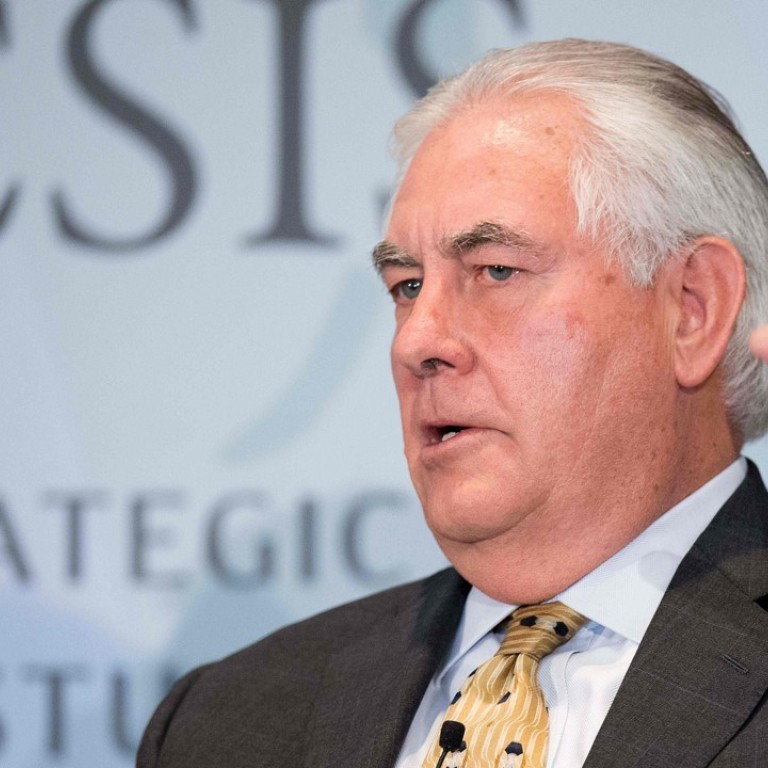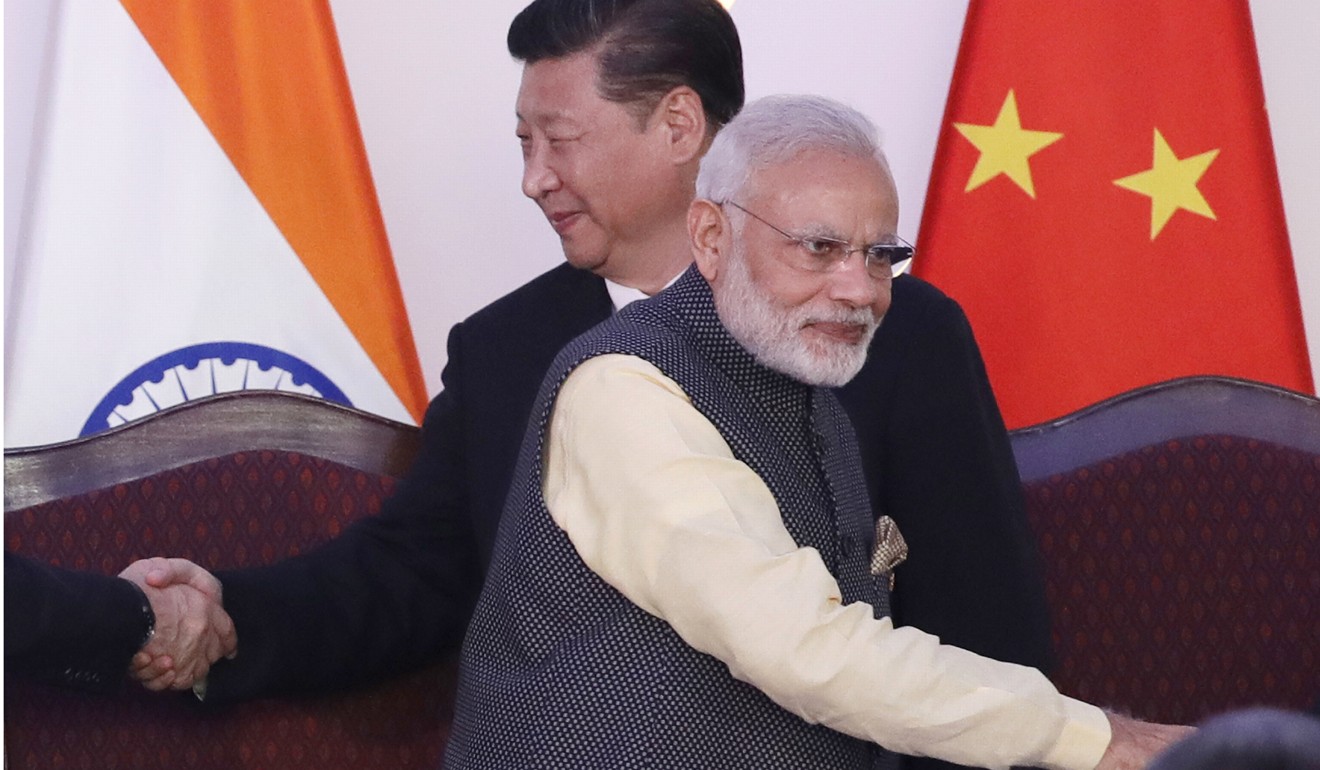
China warns US to drop its bias after Tillerson’s ‘blunt’ message
Beijing tells Washington to take an objective view of China following US secretary of state’s call to ‘dramatically deepen’ ties with New Delhi
Beijing warned the United States to drop its bias against China after US Secretary of State Rex Tillerson said Washington wanted to “dramatically deepen” ties with New Delhi to counter China’s influence in Asia.
Foreign ministry spokesman Lu Kang told a press briefing on Thursday that the US should take an objective view of China, reiterating that Beijing has steadfastly upheld international order, with the United Nations at the centre.
“Based on the purposes and principles of the UN charter, we will firmly uphold multilateralism, yet we will also firmly safeguard our own rights and interests,” Lu said.
Tillerson took aim at China in a speech on Wednesday over instances where Beijing “subverts the sovereignty of neighbouring countries and disadvantages the US” and its allies, citing territorial sovereignty in the South China Sea, where Beijing lays claim to 90 per cent of the waters.
“China, while rising alongside India, has done so less responsibly, at times undermining the international, rules-based order,” he said. “China’s provocative actions in the South China Sea directly challenge the international laws and norms that the United States and India both stand for.”
Ahead of his visit to India next week, Tillerson also set the tone for a “strategic partnership” between Washington and New Delhi – the world’s “two greatest democracies” – over the next century to forge a “free and open Indo-Pacific”.
“Indians and Americans don’t just share an affinity for democracy. We share a vision of the future,” he said.
Tillerson’s remarks come before US President Donald Trump’s five-nation tour through Asia next month, when he will meet Chinese President Xi Jinping. His provocative words were also delivered as China’s all-important 19th party congress is under way – and one day after Xi proclaimed a “new era” of Chinese power.
Shi Yinhong, director of the Centre for American Studies at Renmin University in Beijing, said Tillerson’s “blunt” speech reflected Washington’s longer-term strategic approach centred on the partnership between the US, India, Japan and Australia to keep Chinese power in check.
“The China-US strategic, and even economic, rivalry will continue to grow, it will be more profound, and more prominent,” he said. “Xi of course will not be pleased at all with this sort of speech.”

Brahma Chellaney, a professor of strategic studies at New Delhi-based think tank the Centre for Policy Research, said Tillerson’s speech made clear that US policy in the Asia-Pacific would centre on India and the alliance of democracies.
“For the first time, we get a sense of where India figures in the Trump administration’s policy vision,” he said. “The US is now looking at India as the key element ... that goal was already driving US foreign policy, but [Tillerson] has laid it out in black and white.”
The relationship between China and India would not be driven by US policy, Chellaney said, but it would continue to be fraught as Beijing showed more assertiveness in the region, including in the South China Sea.
B R Deepak, professor of China studies at Jawaharlal Nehru University in New Delhi, said the remarks reinforced the direction of US-India ties in terms of greater security cooperation as part of a broader containment policy against China.
China and India in late August ended a months-long border dispute on the Doklam plateau, and there are lingering security issues over Beijing’s forays in the Indian Ocean, he said.
Tillerson’s warning to China could also be used as a bargaining chip during Trump’s visit to China, according to Zhang Guihong, an international relations professor specialising in South Asia at Fudan University.
“The three-way interaction between China, the US, and India will be more sensitive as their influence in the Asia-Pacific and the world grows,” he said.
Additional reporting by Agence France-Presse

